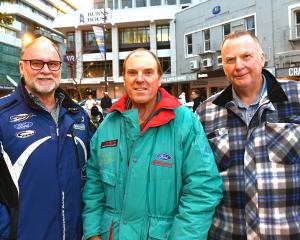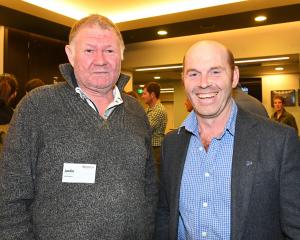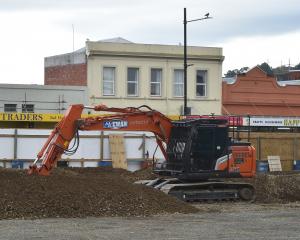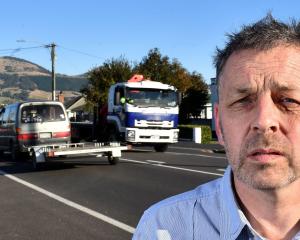A firefighters' union has criticised ongoing staff shortages, saying Fire and Emergency New Zealand is playing "Russian roulette" with the lives of the public.
New Zealand Professional Firefighters Union (NZPFU) Southern branch local secretary and Senior Station Officer Mark Leonard said it was concerning that Dunedin City Station’s lead fire engine had been unmanned for 12 shifts over the past two months due to staff shortages.
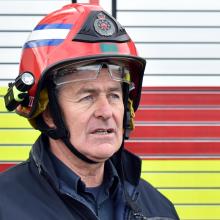
If there was an emergency in the city, it would take longer for a crew to arrive from an outlying station to attend the incident.
Many firefighters were doing "extraordinary hours" to cover the gaps, not just in Dunedin, but across the country, he said.
NZPFU national secretary Wattie Watson said the problem was that Fenz had failed to employ enough staff.
The expected ratio of four firefighters to a truck needed to be increased to at least five to cover for leave, training and injury.
Staffing problems had been flagged in the past, but now the public was suffering as well as firefighters.
Fenz was playing "Russian roulette" with public safety, Ms Watson said.
If not tackled now the problem would get worse over the next decade.
Firefighters working excessive hours to cover shortfalls would only compound the problems faced by the workforce
She called it a "crisis" situation but did not believe it was a funding issue. .
The issue was with Fenz’s priorities, where large sums of money were being spent to create a corporate structure despite problems with uniforms and appliances.
"It’s just a refusal to plan," she said.
The buck should stop with the executive leadership team and board.
There needed to be an inquiry, she said.
Fenz Te Kei region manager Mike Grant said when staffing shortages had affected the lead appliance at Dunedin City Station, there had been cover available from neighbouring stations to keep the Dunedin community safe.
Fenz chief executive Kerry Gregory said it had the capacity and planning in place to respond to emergencies, and contingency plans were always in place.
Before overtime, firefighters worked an average of 42 hours a week and were rostered so they could respond to incidents around the clock.
“I am aware that some personnel occasionally work long hours and like many organisations, we have recently been impacted by absences due to Omicron but I am not aware of any of our people routinely doing 90 or 100 hours a week," Gregory said.
Comments
Having been a volunteer firefighter and knowing what the (paid) management are like, glossing over any dissent and ignoring any complaint from the ranks, I'd be inclined to believe the union and say that the residents of Dunedin should be worried.
In my time I noticed that on the (very) rare occasion that we saw management, they were pretty well removed from the reality of what happens on the front line.




